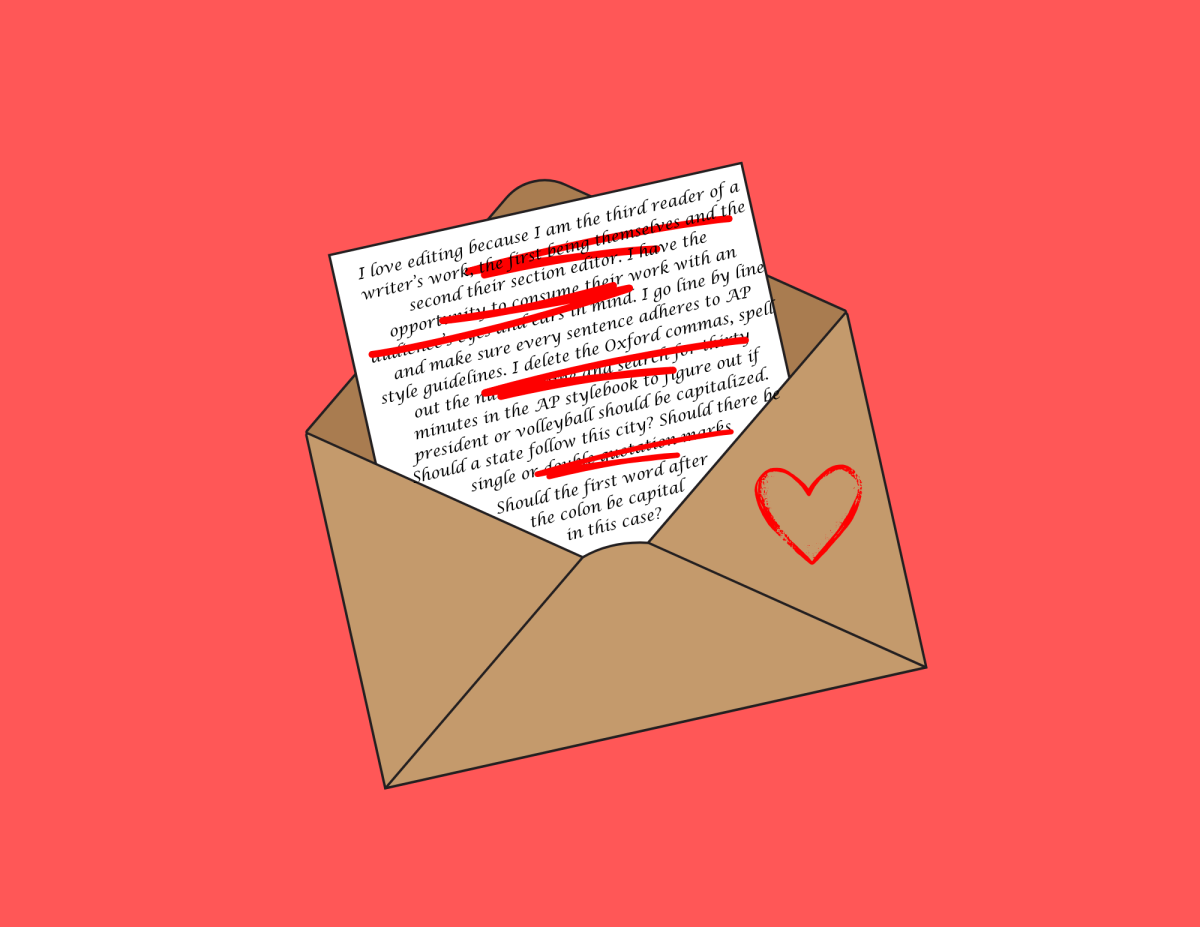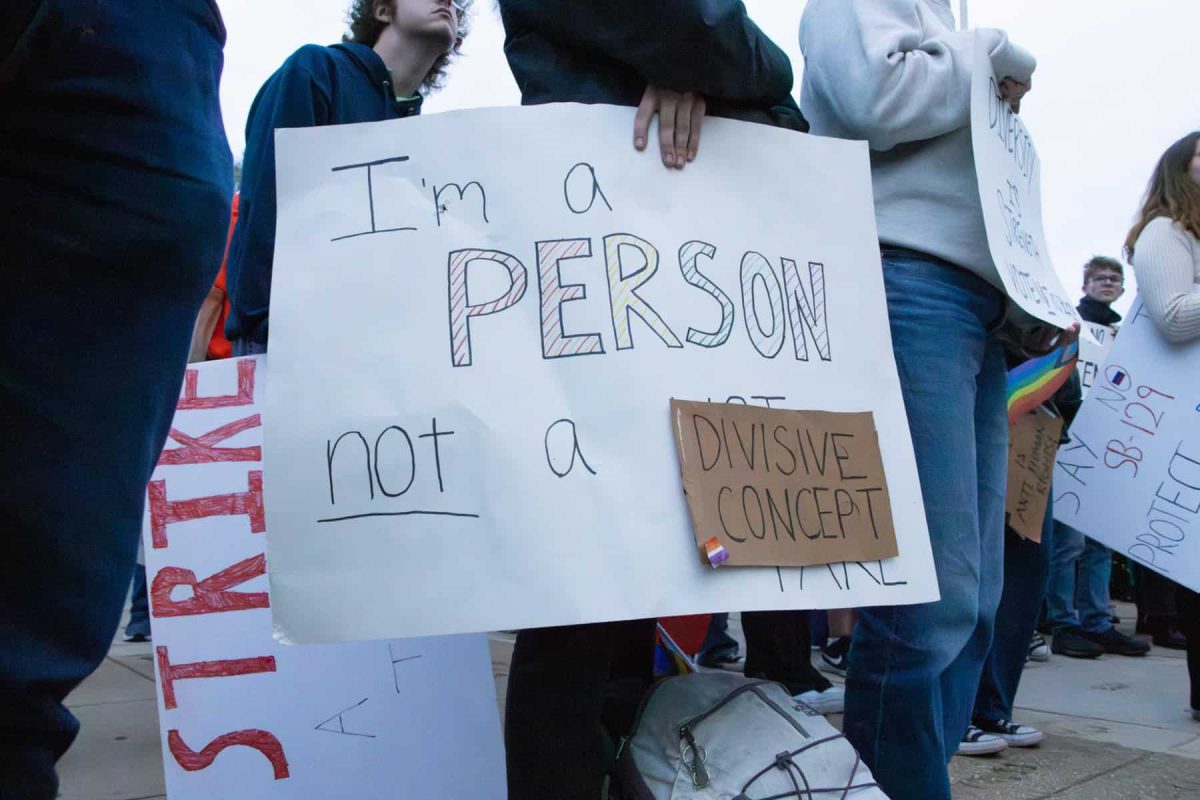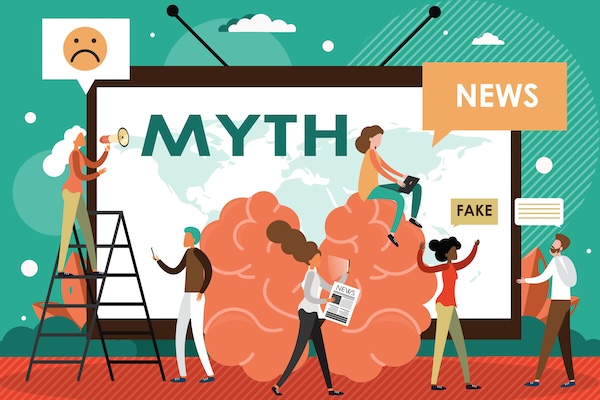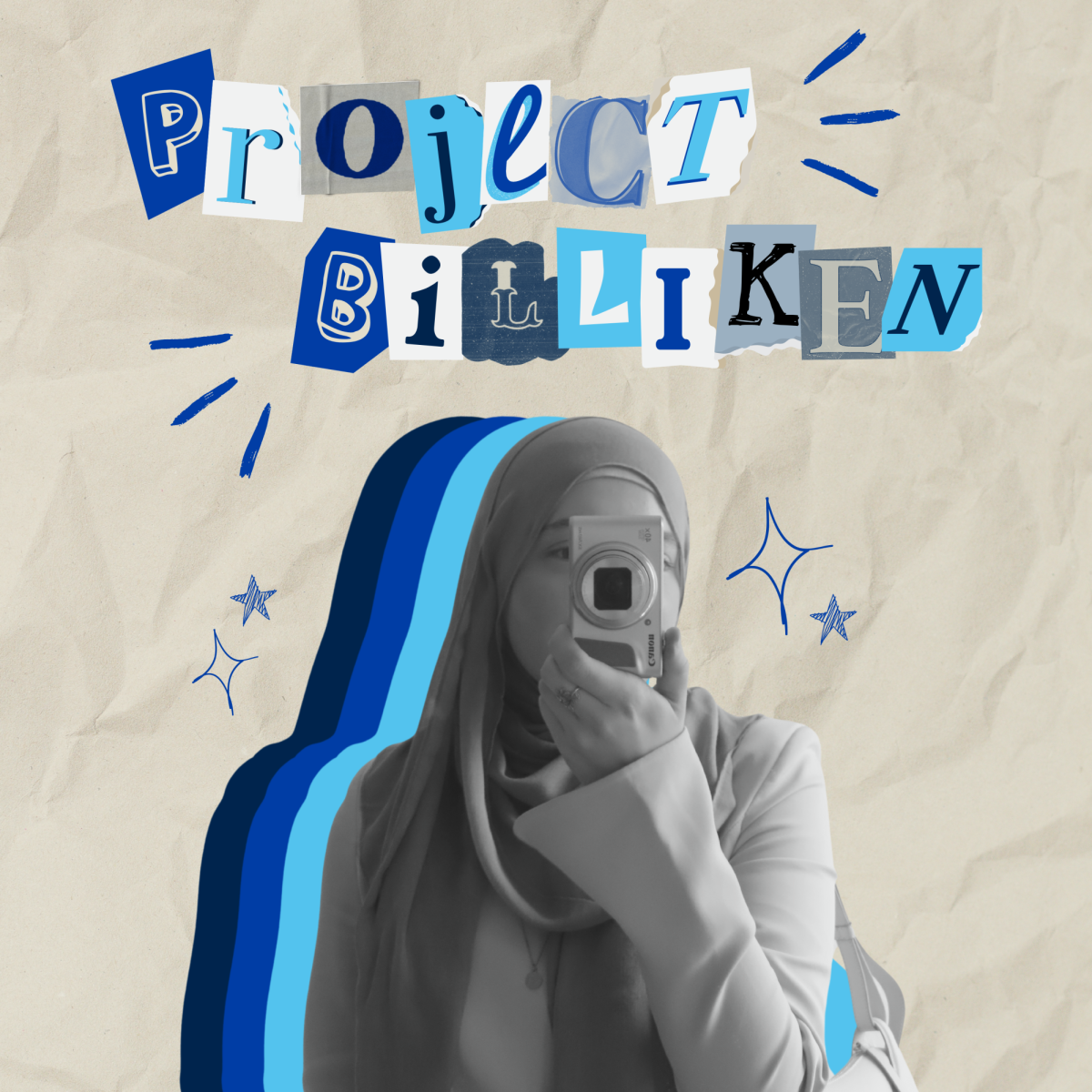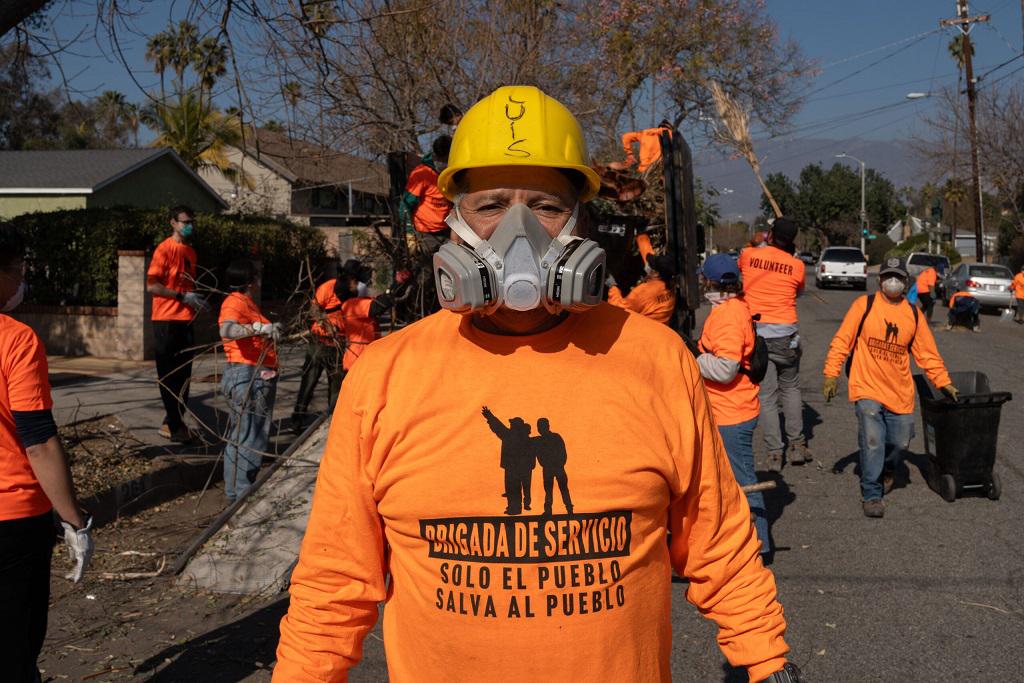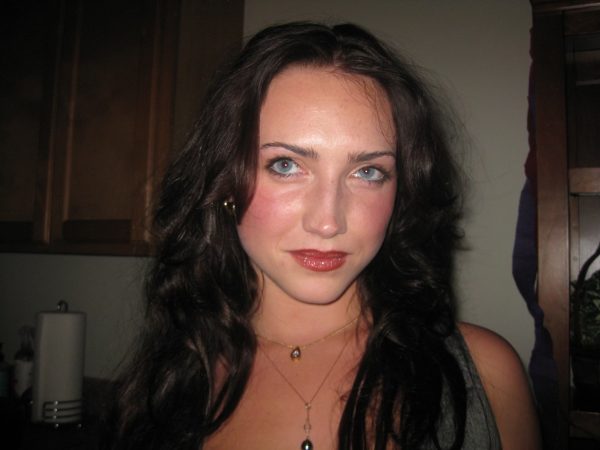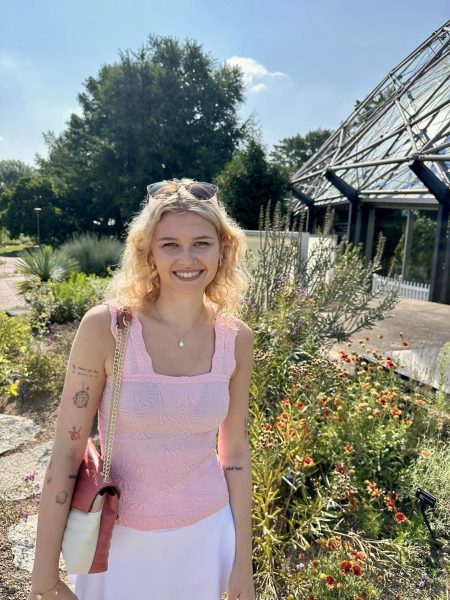I have been editing for almost three years, and I still reference my Associated Press Stylebook, annually repurchased for $30, to validate most of my edits. I have Associated Press News bookmarked on my computer and click it every time I open an article from The University News copy folder. I cannot imagine receiving 86 edits from a copy editor you barely know and have never talked to. Writers place blind trust in a copy editor’s edits; trusting that they know what they are editing, why they are editing and why they have the authority and responsibility to edit.
I love editing because I am the third reader of a writer’s work, the first being themselves and the second their section editor. I have the opportunity to consume their work with an audience’s eyes and ears in mind. I go line by line and make sure every sentence adheres to AP style guidelines. I delete the Oxford commas, spell out the number nine and search for thirty minutes in the AP stylebook to figure out if president or volleyball should be capitalized. Should a state follow this city? Should there be single or double quotation marks? Should the first word after the colon be capitalized, in this specific case?
I have spent almost an hour figuring out if a sentence could be rewritten in active voice or if a semicolon was needed to clarify a point. I go through the article and add a period between every mention of a.m. or p.m., delete unnecessary adjectives or adverbs and decide whether a writer chose the right word. The AP stylebook reminds me that smaller words are better than bigger words.
I spend around an hour on average editing each article gracing my screen. I make mistakes when editing, more often than I would like. I appreciate the economics of QWERTY and the delete key — the one I use the most.
When I’m done, a writer sees a lot of green: added commas, deleted words, reworded sentences, deleted sentences, added paragraphs and more. I have been, and still am, a writer too. I remember how overwhelming it feels to see something I spent hours writing seemingly dismantled, altered and obscured from what I initially submitted to the section editor. I know the disheartened feeling that quickly overtakes the eager, elated excitement of having your writing published in a newspaper, of considering yourself a journalist.
When I became an editor, I realized how difficult the position is because of the trust it requires. Why did this editor, someone I might not even recognize in our weekly Wednesday meetings, think that my sentence wasn’t good enough? In recent months, I have made the mistake of not explaining to writers why I am making the edits I make, and to those who have received green marks from me, I apologize. I neglected to honor transparency and forgot I hadn’t yet earned your trust. Does over 100 hours of editing make my changes credible and worthwhile? I cannot make a writer trust me. Do you believe me when I say you should delete this sentence and replace it with the one I wrote? I cannot — or perhaps, I can perfectly — imagine the frustration and resentment writers must feel towards me.
Editing is the hardest job I have ever had, but I love it.
There is hesitancy in every keystroke when I edit; editing a writer’s work settles you into a position of authority, one that willingly offers you power over a writer’s voice. It is the most precarious balance between preserving a writer’s voice and aiming to improve their writing, a balance that often makes me uncomfortable and unsettled. The power dynamic is apparent when my phone buzzes with notifications of writers accepting my edits. It is a dynamic I am horribly conscious of and constantly reminding myself of.
More often than not, I don’t believe that my edits are always the “right” ones or that I know better than a writer. My job is to collaborate and participate, not dictate. To refine and empathize, not rewrite. My job is to trust and be trusted. Consider this my mantra, and still, I often forget to repeat it every time I rest my wrists on my computer’s trackpad.
I lack the courage writers have. They are the truly courageous ones, because putting their stories, their thoughts, their beliefs and their idiolect onto a page requires complete vulnerability. They take time out of their day to pour their attention, effort and interest into words, sentences and ultimately, an article that is bound to be scrutinized. The idea of hundreds of people reading my words terrifies me. Perhaps that is why I thrive in the background, in using the suggesting mode on Google Docs and nearly never using the editing mode.
I read writers’ finished stories and see the dance we did, the twirls, twists and steps of editing cemented online or in my hands when I hand out papers on West Pine. It is a silent relationship to those who have the opportunity to read the article, but to me, it is hours spent contemplating whether a comma should be after a phrase or if hyphens would work better, even though the AP stylebook advises that they are far from standardized and a matter of judgment. Every suggestion comes with weight.
I cannot call writers’ articles also mine; that would be sacrilege. I don’t have the creative or courageous ability to turn contemplation into words for the masses. I hope, however, that I help turn their article into something they are proud of and that the UNews is proud to publish.
I cannot imagine receiving edits from myself, but I hope writers know that my only intention when I edit is to see their writing as who they are and help turn it into the best version of themself. I cannot imagine not being a copy editor. I never thought that with this position I would come to love the AP stylebook — it is notoriously annoying and infuriating to navigate — or that I would love editing as much as I do.
How could I not love it when editing grants me the medium to see people and the world through their eyes in the most intimate, vulnerable dance I have ever done, all through the accepting or rejecting of suggestions made on Google Docs?




